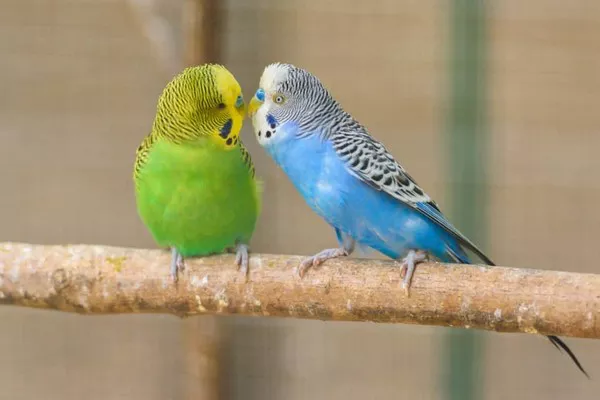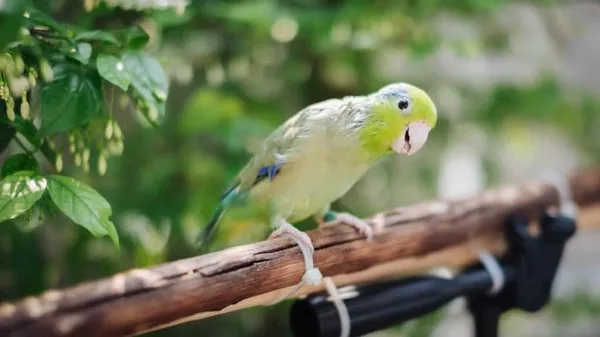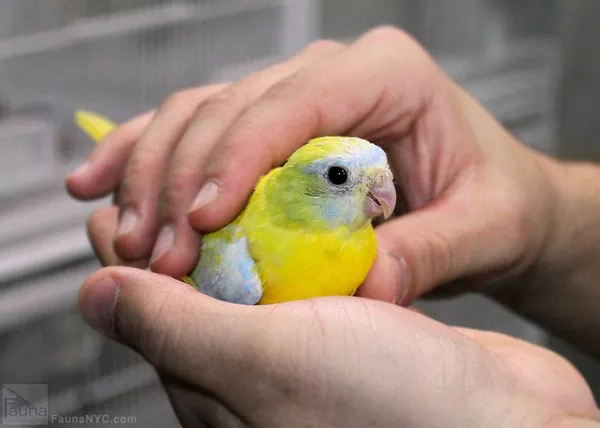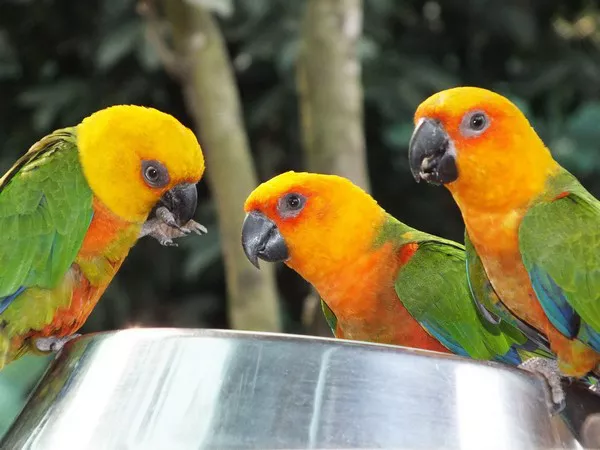Indian Ringneck Parrots (Psittacula krameri manillensis) are popular and charismatic companion birds known for their vibrant colors and engaging personalities. These parrots require a balanced and nutritious diet to thrive and maintain their health and well-being. Providing the right food is essential for ensuring their longevity, vitality, and overall happiness. In this article, we will delve into the best food choices for Indian Ringneck Parrots, taking into consideration their dietary requirements, preferences, and potential health concerns.
1. Pellets: A Solid Foundation
One of the most convenient and well-rounded options for feeding Indian Ringneck Parrots is high-quality commercial pellets. These pellets are formulated to provide a balanced blend of essential nutrients, vitamins, and minerals that your parrot needs. Opt for pellets that are specifically designed for medium to large parrot species, as they cater to the unique dietary requirements of Indian Ringneck Parrots.
2. Fresh Fruits: A Colorful Delight
Incorporating a variety of fresh fruits into your Indian Ringneck Parrot‘s diet can offer both nutrition and mental stimulation. Fruits like apples, grapes, bananas, and berries are rich in vitamins and antioxidants. However, it’s important to remember that fruits should be given in moderation due to their natural sugar content. Remove any uneaten fruit after a few hours to prevent spoilage.
3. Nutrient-Rich Vegetables
Vegetables are another crucial component of a well-rounded diet for Indian Ringneck Parrots. Dark, leafy greens such as spinach and kale are excellent sources of vitamins A and K. Other vegetables like carrots, bell peppers, and broccoli provide essential nutrients and add variety to your parrot’s meals. Be sure to wash vegetables thoroughly to remove any pesticides before offering them to your feathered friend.
4. Wholesome Grains and Legumes
Whole grains and legumes can provide your Indian Ringneck Parrot with a good source of carbohydrates and protein. Foods like cooked brown rice, quinoa, lentils, and chickpeas can be offered in small quantities to supplement their diet. Ensure that these grains and legumes are properly cooked to make digestion easier for your parrot.
5. Nuts and Seeds: Healthy Fats
Nuts and seeds are energy-dense foods that can be included in your parrot’s diet, but moderation is key. These foods contain healthy fats that are essential for maintaining a parrot’s overall health. Incorporate a variety of nuts like almonds, walnuts, and pistachios, as well as seeds such as sunflower and pumpkin seeds. Remember that nuts and seeds should only make up a small portion of the diet due to their high fat content.
6. Hydration is Vital
Always provide clean and fresh water for your Indian Ringneck Parrot. Hydration is essential for digestion, circulation, and overall health. Regularly change the water in their water dish and clean the dish to prevent the growth of bacteria.
7. Foods to Avoid
Certain foods should be avoided as they can be harmful to your Indian Ringneck Parrot’s health. These include chocolate, avocado, caffeine, alcohol, salty foods, sugary treats, and foods high in fat or sodium. Additionally, avoid giving them any foods that are toxic to birds.
Conclusion
A balanced and nutritious diet is paramount to the well-being of your Indian Ringneck Parrot. By offering a combination of high-quality pellets, fresh fruits, vegetables, whole grains, legumes, nuts, and seeds, you can ensure that your feathered companion receives the essential nutrients needed for a healthy and happy life. Remember to provide a variety of foods, practice moderation, and consult with a veterinarian if you have any concerns about your parrot’s dietary needs. Your dedicated efforts in providing the best food for your Indian Ringneck Parrot will contribute to their vitality and longevity as a cherished member of your family.
Related Topics:
























